Philosophy and Politics – Vilifying the Other
In a world increasingly defined by division, the concept of vilifying the 'other' emerges as a powerful and troubling theme that intertwines philosophy and politics. This article explores how the act of defining someone as 'other' not only shapes our identities but also influences the very fabric of our society. It raises questions: Why do we feel the need to vilify those who are different from us? What are the implications of such actions on our collective consciousness?
At its core, vilification is about creating an 'us versus them' narrative. This divisive rhetoric can be seen in various political arenas, where leaders often resort to demonizing opposing factions to solidify their own base. The philosophical implications of this behavior are profound, as it challenges our understanding of ethics, morality, and the essence of humanity. By labeling others as enemies or outsiders, we not only strip them of their individuality but also risk fostering an environment where hate and misunderstanding thrive.
As we delve deeper into this topic, we will explore the historical context of vilification, examining how societies have repeatedly turned against those deemed 'other.' From ancient civilizations to modern democracies, the patterns of exclusion and discrimination emerge as a recurring theme. By analyzing these patterns, we can better understand the mechanisms of vilification and its impact on governance and societal dynamics.
In the sections that follow, we will also investigate the role of modern political rhetoric and the media in perpetuating these narratives. Politicians often exploit fears and prejudices, using vilification as a tool to galvanize support or divert attention from pressing issues. Similarly, the media plays a crucial role in shaping public perceptions, often amplifying divisive rhetoric through sensationalized reporting and biased coverage.
Ultimately, the consequences of vilifying the other are far-reaching. It erodes social cohesion, increases polarization, and influences policy-making in ways that can marginalize entire communities. By understanding the philosophical perspectives on this issue, we can begin to address the ethical dilemmas posed by vilification and seek pathways toward greater empathy and understanding.
As we embark on this exploration, let us remain curious and open-minded, seeking not only to understand the mechanics of vilification but also to envision a future where inclusivity and acceptance prevail over division and hostility.
- What does vilifying the other mean? Vilifying the other refers to the act of demonizing or dehumanizing individuals or groups perceived as different or opposing, often leading to discrimination and exclusion.
- How does vilification affect society? Vilification can create divisions within society, eroding social cohesion, increasing polarization, and influencing negative policy-making that marginalizes certain groups.
- What role does the media play in vilification? The media can amplify narratives that vilify the other through biased reporting or sensationalism, shaping public perceptions and attitudes toward marginalized groups.
- Can vilification be addressed? Yes, addressing vilification requires fostering empathy, understanding, and open dialogue, as well as challenging the narratives that perpetuate division.

The Concept of the 'Other'
Understanding the philosophical underpinnings of the 'other' is crucial in today's world. The notion of the 'other' often refers to individuals or groups who are perceived as different from oneself, whether in terms of culture, ethnicity, beliefs, or social norms. This concept shapes our identity and belonging, creating a framework through which we view ourselves and those around us. The 'other' can be anyone—from a neighbor with a different background to a distant nation with contrasting values. But why does this matter? Well, it influences not just personal relationships but also broader societal dynamics and political discourse.
At its core, the 'other' serves as a mirror reflecting our own identities. When we define ourselves in relation to others, we often emphasize differences. This can lead to a sense of superiority or inferiority, depending on how we perceive these differences. For instance, consider how communities rally around shared beliefs or experiences, often resulting in the exclusion of those who don't fit into this mold. This sense of belonging can be comforting, but it can also foster an 'us versus them' mentality that is detrimental to social cohesion.
Moreover, the concept of the 'other' plays a significant role in political rhetoric. Politicians often exploit this idea to galvanize support, painting certain groups as threats or enemies. This manipulation can lead to a dangerous cycle of vilification, where the 'other' becomes a scapegoat for societal issues. The implications of this are profound, as it not only affects interpersonal relationships but also shapes public policy and governance.
To illustrate this further, let's consider some key aspects of how the 'other' is perceived:
| Aspect | Explanation |
|---|---|
| Identity | The 'other' helps define who we are by contrasting our values and beliefs with theirs. |
| Belonging | Communities often form around shared identities, leading to the exclusion of those deemed 'other.' |
| Political Discourse | Politicians may use the 'other' to distract from pressing issues, creating a common enemy. |
Ultimately, recognizing the concept of the 'other' is essential for fostering empathy and understanding in our increasingly polarized world. By acknowledging our differences without vilifying them, we can work towards a more inclusive society. The challenge lies in overcoming the instinct to vilify what we do not understand and instead embracing the richness that diversity brings to our lives.

Historical Context of Vilification
The history of vilification is as old as civilization itself, deeply woven into the fabric of societal interactions and political power plays. From ancient empires to modern democracies, the act of vilifying the 'other' has served as a tool for unifying one group while casting another aside. This practice often emerges during times of crisis, where leaders exploit fear and uncertainty to rally support, creating a scapegoat to blame for societal woes. The implications of these actions ripple through history, shaping not only political landscapes but also cultural narratives.
To understand the historical context of vilification, we can look back at several key periods that exemplify this phenomenon:
- Ancient Rome: The Roman Empire often vilified its enemies, portraying them as barbaric and uncivilized. This portrayal helped to justify military conquests and the expansion of Roman territory.
- The Spanish Inquisition: Individuals accused of heresy were not only punished but also vilified, reinforcing the church's power and control over the populace.
- World War II: The Nazi regime's vilification of Jews and other minority groups serves as one of the most horrific examples of how political rhetoric can lead to genocide, illustrating the devastating consequences of dehumanizing the 'other.'
These historical instances reveal a consistent pattern: vilification often serves to consolidate power and control by creating an 'us vs. them' mentality. By framing certain groups as threats, leaders can divert attention from their own failures, rallying the masses around a common enemy. This not only strengthens in-group identity but also justifies exclusionary practices and policies that can have long-lasting effects on societal cohesion.
Moreover, the ideologies that underpin these acts of vilification often find their roots in philosophical thought. For instance, existentialist philosophy explores the concept of the 'other' as a means of defining oneself. In contrast, utilitarianism might justify vilification if it leads to a perceived greater good for the majority. Such philosophical frameworks provide insight into why societies may accept or even endorse the vilification of certain groups, despite the ethical implications.
As we continue to analyze history, it becomes evident that the consequences of vilification extend beyond the immediate political context. They can lead to entrenched societal divisions, where stereotypes and prejudices become normalized. This normalization can perpetuate cycles of discrimination that last for generations, affecting everything from social interactions to policy-making.
In summary, the historical context of vilification is rich and complex, characterized by recurring themes of power, fear, and identity. Understanding these patterns is crucial for recognizing how similar dynamics may be at play in contemporary society, urging us to reflect on the ethical implications of our political discourse.
- What is vilification? Vilification refers to the act of portraying a person or group in a negative light, often to incite fear or hatred among others.
- How does vilification affect society? It can lead to increased polarization, discrimination, and social unrest, undermining social cohesion and community relations.
- Can vilification be justified? While some may argue that vilification serves a political purpose, ethical considerations suggest that it often leads to harmful consequences.
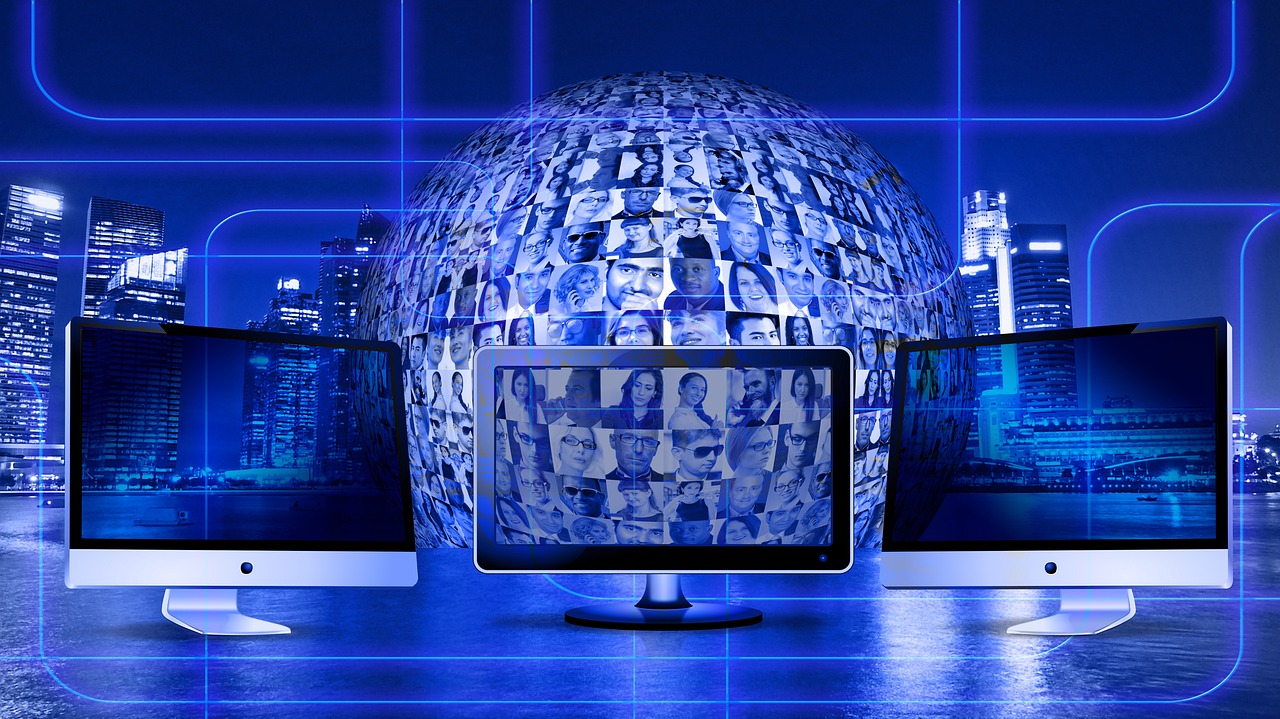
Case Studies in Vilification
The phenomenon of vilifying the 'other' is not just a theoretical concept; it has played a significant role in shaping political landscapes across different cultures and eras. By examining specific case studies, we can gain valuable insights into how this practice manifests and the consequences it brings. One of the most striking examples is the treatment of Jewish communities during the Nazi regime in Germany. The Nazis employed a systematic campaign of vilification, portraying Jews as subhuman and responsible for societal ills. This narrative not only justified discrimination but also paved the way for the Holocaust, illustrating how vilification can lead to horrific outcomes.
Another poignant case study is the vilification of immigrants in contemporary political discourse, particularly in the United States and Europe. Politicians often use inflammatory rhetoric to paint immigrants as threats to national security and economic stability. This tactic has been evident in various election cycles, where candidates have rallied support by fostering fear and resentment towards immigrant populations. The impact of such vilification is profound: it not only affects public perception but also influences policy decisions that can lead to detrimental consequences for entire communities.
In addition to these historical and modern examples, we can also look at the vilification of political opponents in various democratic societies. During election campaigns, it is common for candidates to demonize their rivals, portraying them as untrustworthy or dangerous. This strategy can create an "us vs. them" mentality, further entrenching divisions within society. For instance, the political climate in the United States has seen a dramatic increase in the use of vilification, where opposing parties are often depicted in extreme and negative terms. This not only polarizes voters but also diminishes the possibility of constructive dialogue.
To better understand the patterns of vilification, we can summarize key case studies in the following table:
| Case Study | Context | Consequences |
|---|---|---|
| Nazi Germany | Systematic vilification of Jews | Holocaust, widespread discrimination |
| Modern Immigration Discourse | Vilification of immigrants in the U.S. and Europe | Policy changes, social division |
| Political Campaigns | Demonization of political opponents | Increased polarization, reduced dialogue |
These case studies reveal a troubling pattern: vilification is often used as a tool to manipulate public opinion and justify exclusionary policies. By understanding these historical and contemporary examples, we can better grasp the implications of vilifying the 'other' and work towards fostering a more inclusive and compassionate society.
- What is vilification? Vilification refers to the act of portraying a person or group in a negative light, often leading to discrimination and exclusion.
- How does vilification affect society? It can create divisions, foster hatred, and lead to harmful policies that impact marginalized communities.
- Can vilification be countered? Yes, through education, dialogue, and promoting empathy, societies can combat the negative effects of vilification.
- Why is it important to study vilification? Understanding vilification helps us recognize patterns of discrimination and work towards creating a more inclusive society.
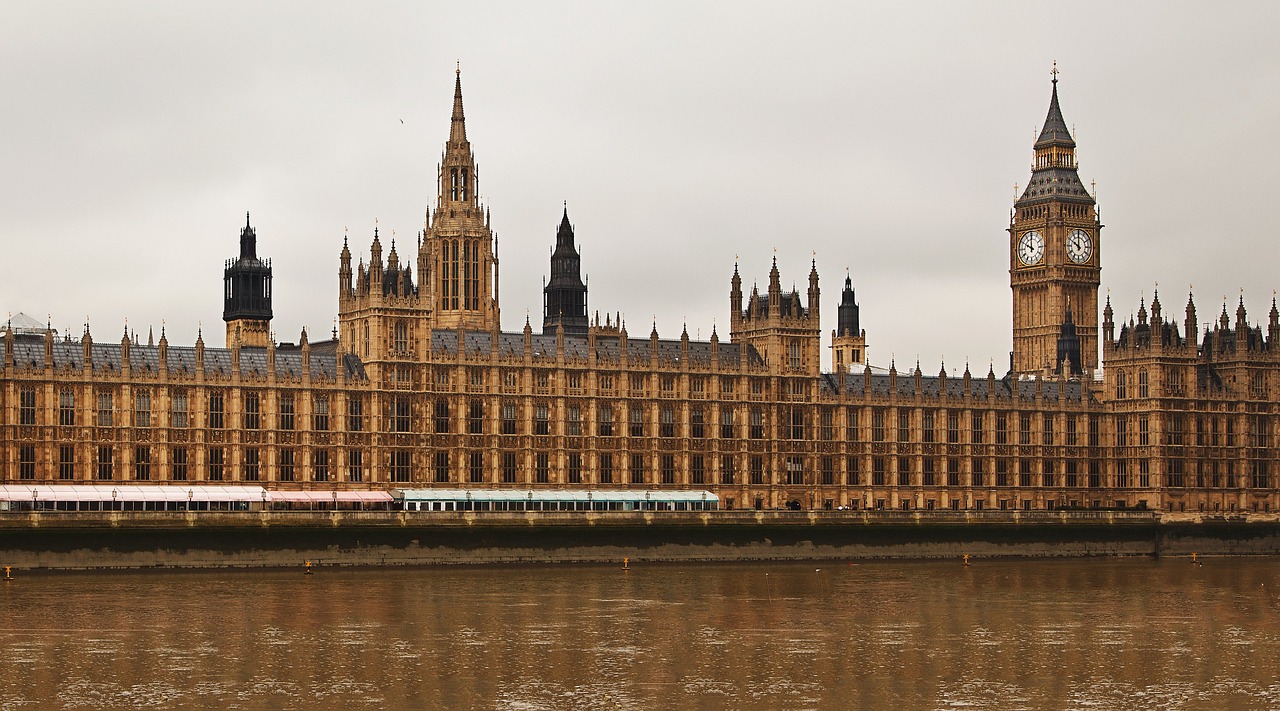
Modern Political Rhetoric
In today's political landscape, the use of vilification as a rhetorical strategy has become alarmingly prevalent. Politicians often resort to painting their opponents as the 'other'—a term that encapsulates anyone who stands in opposition to their beliefs, values, or policies. But why do they do this? The answer lies in the psychological and emotional resonance that such tactics evoke in the electorate. By portraying opponents as fundamentally different or even dangerous, politicians can galvanize support and create a sense of urgency among their followers. This tactic is not just about winning debates; it’s about creating a narrative that resonates deeply with people's fears and insecurities.
Consider the way modern campaigns are structured. They often revolve around a central theme that simplifies complex issues into digestible soundbites. This is where vilification comes into play. By labeling an opponent or a group as the 'other,' a politician can easily rally their base by fostering a sense of unity against a common enemy. For instance, during election cycles, we frequently hear phrases that evoke fear or disdain towards immigrants, minority groups, or even opposing political parties. This kind of rhetoric not only simplifies the political debate but also distracts from substantive discussions about policies and governance.
Moreover, modern political rhetoric is heavily influenced by social media, which amplifies these vilifying narratives. Platforms like Twitter and Facebook allow for rapid dissemination of messages that can distort reality. Misinformation spreads like wildfire, and the vilification of the 'other' often becomes a trending topic, reinforcing biases and deepening societal divides. A simple tweet can turn an entire narrative, and before we know it, entire communities are labeled and marginalized based on a few sensationalized statements.
It's also important to note that this vilification is not limited to political opponents. Often, it extends to entire groups of people based on race, religion, or ideology. For example, during times of crisis, such as economic downturns or national emergencies, the tendency to scapegoat certain populations increases. Politicians may exploit these situations to divert attention from their own shortcomings, blaming the 'other' for societal woes. This tactic not only serves to unify their base but also distracts from pressing issues that require thoughtful solutions.
To illustrate the impact of modern political rhetoric, let’s take a look at a few notable examples:
| Example | Context | Outcome |
|---|---|---|
| Immigration Rhetoric | Political campaigns often frame immigrants as threats. | Increased xenophobia and support for restrictive policies. |
| Partisan Attacks | Politicians label opposing parties as corrupt or unpatriotic. | Deepened political polarization and reduced bipartisanship. |
| Media Manipulation | News outlets may sensationalize stories about certain groups. | Reinforcement of stereotypes and social division. |
In conclusion, the role of vilification in modern political rhetoric cannot be overstated. It is a powerful tool that shapes public perception and influences electoral outcomes. While it may provide short-term gains for politicians, the long-term consequences for society are troubling. As we navigate this complex landscape, it's crucial to remain vigilant and critically assess the narratives being presented to us. Only then can we hope to foster a political climate that values dialogue over division.
- What is vilification in politics? Vilification in politics refers to the act of demonizing or dehumanizing opponents or groups, often to rally support or distract from other issues.
- How does social media influence political vilification? Social media amplifies vilifying rhetoric by allowing rapid dissemination of messages, often distorting reality and reinforcing biases.
- What are the consequences of vilifying the 'other'? Vilification can lead to increased polarization, social division, and the scapegoating of marginalized communities.

Media’s Role in Vilifying the Other
The media, often dubbed the "fourth estate," wields immense power in shaping public perception and discourse. Its role in vilifying the 'other' cannot be overstated, as it serves as both a mirror and a magnifying glass for societal attitudes. When we think about how certain groups are portrayed, we must consider the language used, the imagery presented, and the narratives constructed. For instance, negative stereotypes can be perpetuated through selective reporting, sensationalism, and the framing of stories that highlight differences rather than commonalities.
In today's digital age, the reach of media has expanded exponentially. Social media platforms, in particular, have become breeding grounds for divisive rhetoric. Tweets, posts, and comments can spread like wildfire, often amplifying vilifying narratives without adequate context or fact-checking. This phenomenon raises a critical question: how often do we stop to think about the impact of our online interactions? When we share or engage with content that vilifies a group, we contribute to a cycle of negativity that can have real-world consequences.
To illustrate the media's influence, consider the following table that outlines different mediums and their impact on public perception:
| Medium | Impact on Vilification |
|---|---|
| Television News | Often emphasizes dramatic narratives, focusing on crime and conflict involving marginalized groups. |
| Social Media | Facilitates rapid spread of misinformation and polarizing content, often leading to mob mentality. |
| Print Media | Can provide in-depth analysis but may also perpetuate stereotypes through biased reporting. |
| Online Blogs and Forums | Can either challenge or reinforce vilifying narratives based on the author's perspective. |
Moreover, the language used in media coverage plays a pivotal role in shaping perceptions. Terms like "illegal," "radical," or "threatening" can dehumanize individuals and groups, painting them as the enemy. This kind of rhetoric not only influences public opinion but also affects policy decisions and societal attitudes. When the media frames a group as a threat, it creates an environment where discrimination and hostility can flourish. In essence, the media doesn't just report on societal issues; it actively participates in the construction of societal narratives.
As consumers of media, it's crucial to approach information critically. We must ask ourselves: Are we allowing the media to dictate our perceptions of others? By recognizing the role of media in vilifying the other, we can begin to challenge these narratives and promote a more inclusive discourse. It is essential to seek out diverse perspectives and question the motivations behind the stories we consume. Only then can we hope to break the cycle of vilification and foster a more empathetic society.
In conclusion, the media's role in vilifying the other is a complex interplay of language, representation, and societal attitudes. As we navigate this landscape, let us remain vigilant and committed to fostering understanding rather than division.
- How does media vilification affect real-life interactions?
Media vilification can lead to increased prejudice and discrimination in everyday interactions, reinforcing negative stereotypes and fostering hostility. - What can individuals do to combat vilification in media?
Individuals can critically evaluate media sources, seek out diverse viewpoints, and challenge harmful narratives in discussions. - Is vilification always intentional?
Not necessarily; while some media outlets may intentionally vilify, others may do so inadvertently through biased reporting or sensationalism.
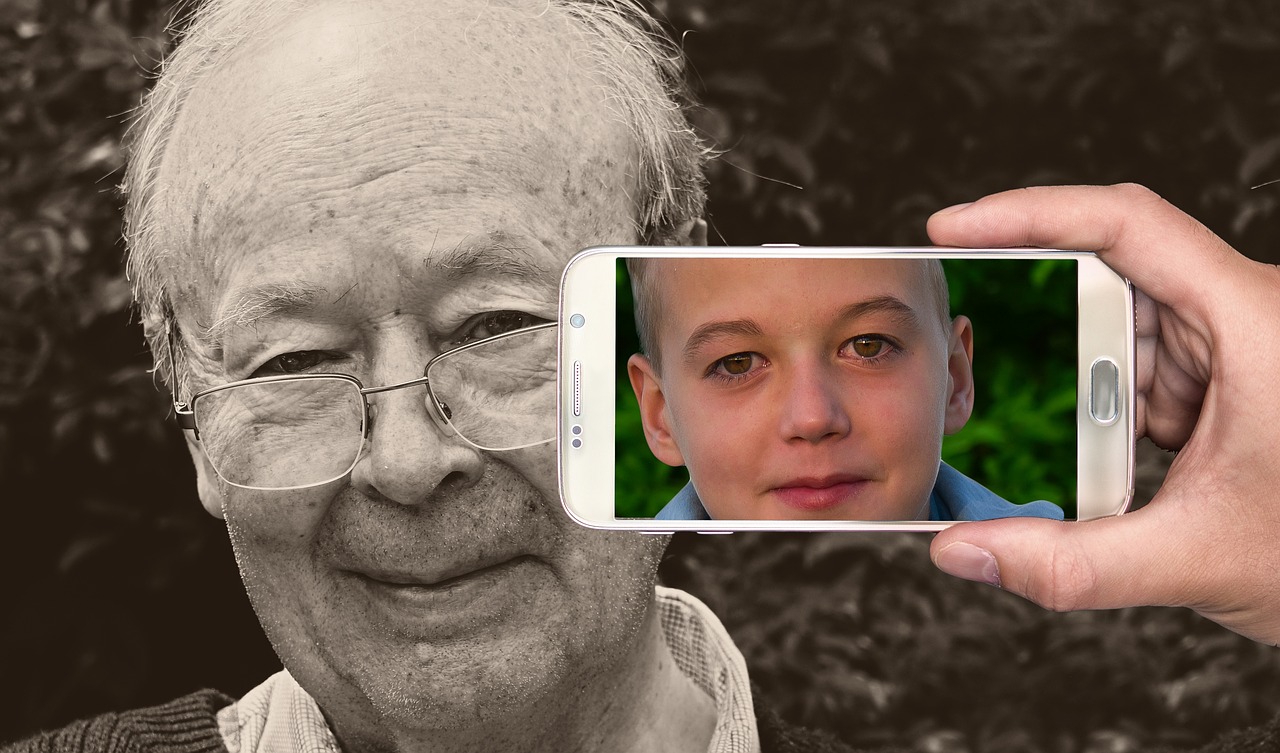
Philosophical Perspectives on Vilification
When we dive into the murky waters of vilification, we encounter various philosophical perspectives that shed light on why this behavior is not just a political tactic but a profound ethical issue. Philosophers have long debated the implications of labeling and dehumanizing others, often framing these discussions within the broader context of morality, identity, and social responsibility. At its core, vilification raises critical questions: What does it mean to be human? How do our perceptions of 'the other' shape our ethical landscapes? And, importantly, what are the consequences of allowing such perceptions to dictate our actions?
One prominent philosophical approach to understanding vilification comes from existentialism, particularly through the lens of Jean-Paul Sartre. Sartre posited that the act of defining oneself is inherently linked to the way we perceive others. When we vilify the 'other', we not only strip them of their humanity but also limit our own potential for authentic existence. This perspective challenges us to reconsider our biases and the narratives we construct around those we deem different. In essence, vilification serves as a barrier to genuine connections, fostering an environment of mistrust and hostility.
On the other hand, utilitarianism provides a contrasting viewpoint. From this perspective, actions are judged based on their outcomes. Politicians and leaders might justify vilification as a means to an end, arguing that rallying against a perceived enemy can lead to greater societal benefits, such as national unity or security. However, this raises a moral dilemma: does the end truly justify the means? The potential harm caused by vilifying others—such as increased violence, discrimination, and social fragmentation—often outweighs any short-term gains. This tension between individual rights and collective good invites a deeper examination of the ethical ramifications of vilification.
Moreover, the philosophy of virtue ethics, championed by Aristotle, emphasizes the importance of character and the cultivation of virtues such as empathy and compassion. From this standpoint, vilification is antithetical to a virtuous life. It encourages us to reflect on our moral character and the kind of society we wish to build. Instead of viewing others through a lens of suspicion and hostility, virtue ethics advocates for understanding and dialogue. This approach suggests that fostering a culture of respect and kindness can lead to healthier communities and more effective governance.
In contemporary discourse, the intersection of philosophy and social justice movements further complicates our understanding of vilification. Critical theory, particularly as articulated by thinkers like Theodor Adorno and Max Horkheimer, examines how societal structures perpetuate discrimination and exclusion. They argue that vilifying the 'other' is not merely a personal failing but a systemic issue that reflects broader societal inequalities. This perspective encourages us to scrutinize the power dynamics at play and to challenge the narratives that uphold such divisions.
Ultimately, the philosophical perspectives on vilification compel us to confront uncomfortable truths about ourselves and our societies. They remind us that vilification is not just a political strategy; it is a reflection of our values and priorities. As we navigate an increasingly polarized world, embracing these philosophical insights can guide us toward more ethical and inclusive practices, fostering a society that values diversity and mutual respect.
- What is vilification? Vilification refers to the act of criticizing or defaming someone or a group, often to the point of dehumanization. It creates an 'us vs. them' mentality.
- How does philosophy relate to vilification? Philosophy provides various frameworks to understand the ethical implications of vilification, examining the consequences on identity, morality, and society.
- Can vilification have positive outcomes? While some argue it can unify a group against a common enemy, the long-term effects often lead to division, discrimination, and social unrest.
- What can we do to combat vilification? Encouraging dialogue, empathy, and understanding can help counteract vilification, fostering a culture of respect and inclusion.
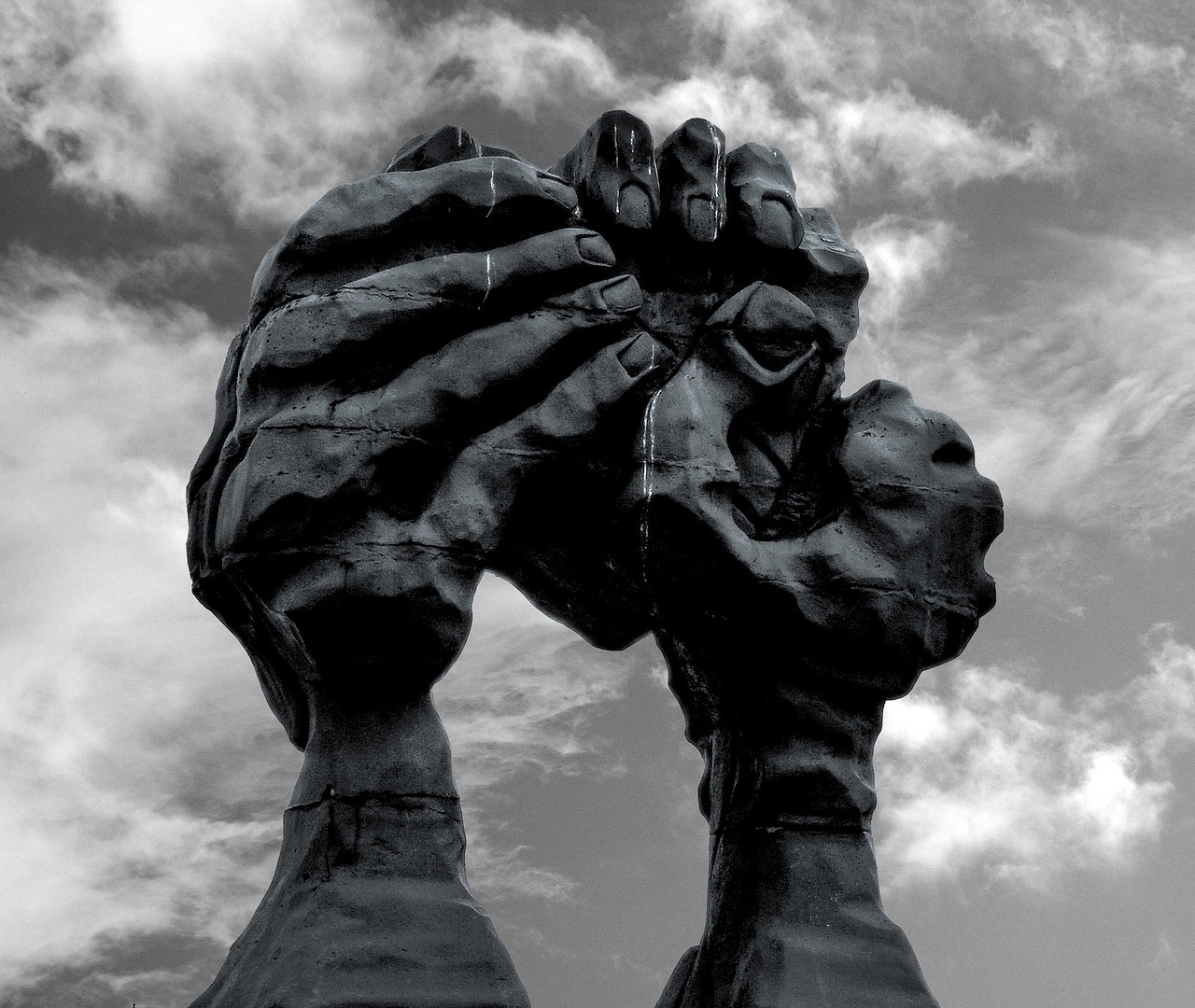
Consequences of Vilification
The act of vilifying the 'other' is not merely a rhetorical device; it has profound and far-reaching consequences that ripple through society, affecting not just the targeted individuals or groups, but also the broader community and political landscape. When we engage in vilification, we are essentially constructing a narrative that defines a group as fundamentally different, inferior, or even dangerous. This process can lead to a myriad of negative outcomes, both socially and psychologically. For instance, vilification can create an environment where empathy is stifled, and understanding is replaced by fear and hostility. As a result, communities may become fractured, with individuals retreating into echo chambers that reinforce their prejudices rather than challenge them.
Moreover, the consequences of vilification extend to the political realm, where divisive rhetoric can influence policy-making and governance. Politicians may exploit these narratives to rally support, often at the expense of marginalized groups. This can lead to legislation that reflects the vilifying attitudes prevalent in society. For example, policies that disproportionately affect certain ethnic or religious groups may emerge from a political climate steeped in vilification. Such actions not only perpetuate discrimination but also undermine the very principles of equality and justice that democratic societies strive to uphold.
To better understand the consequences of vilification, we can categorize them into several key areas:
- Social Division: Vilification fosters an "us vs. them" mentality, leading to increased polarization within communities. This division can manifest in various ways, from social interactions to political affiliations.
- Psychological Impact: The targeted groups often experience significant psychological distress, including anxiety, depression, and a sense of alienation. This can lead to long-term mental health issues.
- Policy Implications: As mentioned earlier, vilification can shape policies that marginalize certain groups, leading to systemic inequality and injustice.
In essence, the consequences of vilification are not isolated incidents; they create a chain reaction that can destabilize the very fabric of society. The ramifications are felt not only by those who are vilified but also by those who engage in the vilification process. The erosion of trust and community bonds can lead to a society that is less cohesive and more prone to conflict. In a world where division is increasingly common, recognizing the consequences of vilification is crucial for fostering a more inclusive and empathetic society.
Q: What is vilification?
A: Vilification refers to the act of portraying a person or group as evil or as a threat, often leading to prejudice and discrimination against them.
Q: How does vilification affect social cohesion?
A: Vilification can erode social cohesion by fostering divisions and creating an "us vs. them" mentality, which can lead to increased polarization and conflict within communities.
Q: Can vilification influence political decisions?
A: Yes, vilification can significantly influence political decisions and policies, often resulting in legislation that marginalizes and discriminates against certain groups.
Q: What are the psychological effects of vilification on targeted groups?
A: Individuals who are vilified may experience a range of psychological effects, including anxiety, depression, and feelings of alienation and helplessness.

Impact on Social Cohesion
The act of vilifying the 'other' can have a **devastating impact** on social cohesion, creating fissures that can tear communities apart. When individuals or groups are labeled as outsiders or enemies, it fosters an environment of distrust and hostility. This is not just a theoretical concern; it has real-world implications that can be observed in various societies around the globe. The **psychological effects** of vilification often lead to increased fear and resentment, which can spiral into violence and discrimination.
Social cohesion is fundamentally about the bonds that connect individuals within a community. When these bonds are weakened by vilification, the fabric of society begins to unravel. People start to see each other not as fellow citizens but as **adversaries**. This shift in perception can lead to a breakdown in communication and collaboration, essential elements for a thriving society. As trust erodes, so does the willingness to work together for common goals, leading to a fragmented community where **individualism** reigns supreme over collective welfare.
Moreover, vilification can create a vicious cycle of **polarization**. When one group is consistently portrayed as the enemy, it often retaliates by vilifying the dominant group in return. This reciprocal hostility can escalate tensions, making it increasingly difficult to bridge divides. In such environments, **dialogue** becomes nearly impossible, and the potential for understanding and empathy diminishes. People become entrenched in their viewpoints, leading to a society where compromise is seen as a weakness rather than a strength.
Let’s consider some examples of how vilification impacts social cohesion:
- Community Relations: In neighborhoods where certain groups are vilified, residents may avoid interactions with those labeled as 'others,' leading to social isolation.
- Collective Identity: When vilification becomes prevalent, it can redefine what it means to belong to a community, often excluding those who are different.
- Public Safety: Increased tensions can lead to a rise in hate crimes and violence, further fracturing community bonds.
In essence, the vilification of the 'other' not only threatens the **individual relationships** within a community but also undermines the very foundations of **societal unity**. As we navigate an increasingly complex world, it becomes imperative to recognize the destructive nature of vilification and actively work towards fostering **inclusivity** and understanding. Only then can we hope to rebuild the social cohesion that is vital for a healthy, functioning society.
- What is social cohesion? Social cohesion refers to the bonds that unite members of a community, fostering a sense of belonging and shared purpose.
- How does vilification affect community relationships? Vilification creates divisions and distrust among community members, leading to social isolation and conflict.
- Can vilification be reversed? Yes, through dialogue, education, and inclusive practices, communities can heal and rebuild trust.
- What are the long-term effects of vilification? Long-term effects can include increased polarization, ongoing conflict, and a fragmented society that struggles to collaborate on shared goals.
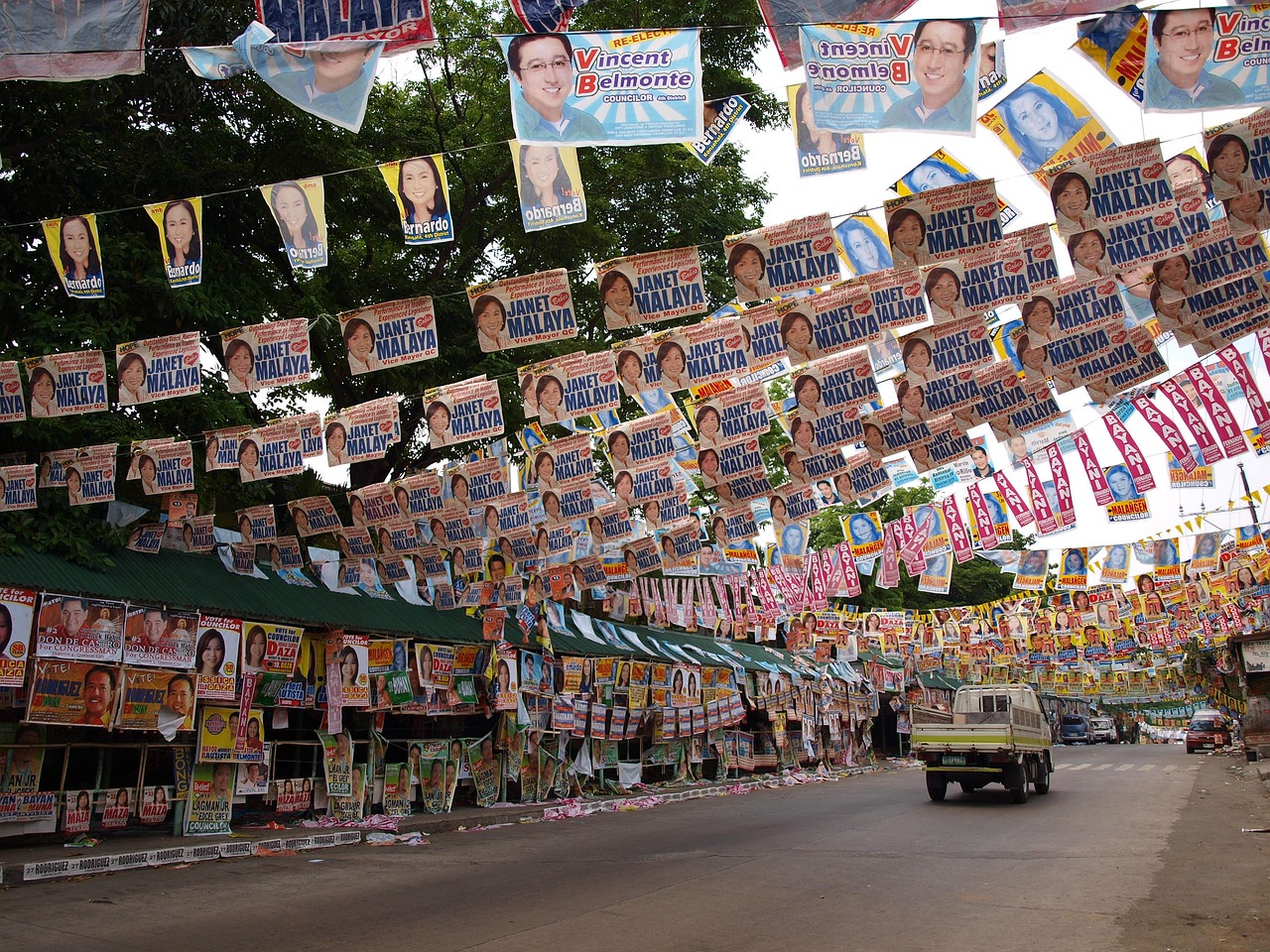
Influence on Policy Making
The influence of vilification on policy making is a complex and often troubling phenomenon. When certain groups are portrayed as the 'other,' it can lead to a cascade of consequences that shape legislation and governance. Politicians, driven by the need to rally support or distract from pressing issues, may resort to vilifying specific groups, framing them as threats to societal values or national security. This tactic not only stirs public emotion but also creates a fertile ground for discriminatory policies.
One of the most striking examples of this can be seen in immigration policies. When immigrants are depicted as criminals or burdens on society, it often results in harsher immigration laws and increased border security measures. These policies are not merely administrative; they reflect a societal mindset that has been influenced by negative portrayals in political rhetoric and media narratives. The vilification of immigrants, for instance, can lead to a public consensus that justifies the implementation of stringent measures that infringe on human rights and dignity.
Moreover, the vilification of certain groups can also influence public health policies. During health crises, marginalized communities may be blamed for the spread of diseases, leading to policies that disproportionately affect them. For example, during the COVID-19 pandemic, certain racial and ethnic groups were unfairly targeted in discussions about responsibility for the virus's spread. This not only stigmatized these communities but also resulted in policies that failed to address the real issues at hand, such as access to healthcare and social support systems.
To illustrate this further, consider the following table that outlines how vilification has historically influenced policy decisions across different contexts:
| Context | Group Vilified | Policy Outcome |
|---|---|---|
| Immigration | Undocumented immigrants | Increased border security and deportation policies |
| Public Health | Minority communities | Discriminatory health measures and stigmatization |
| War | Enemy nations | Justification for military action and sanctions |
As seen in the table, the ramifications of vilifying the 'other' extend beyond mere rhetoric; they manifest in tangible policies that affect lives. This pattern of vilification can create a feedback loop where negative perceptions lead to harmful policies, which in turn reinforce those very perceptions. This cyclical nature of vilification and policy making underscores the importance of critically examining the narratives that dominate political discourse.
In conclusion, the vilification of certain groups plays a pivotal role in shaping policy making processes. It is essential for citizens to remain vigilant and question the narratives presented to them, recognizing that these stories can have profound implications for governance and societal well-being. By fostering a more inclusive and understanding dialogue, we can work towards policies that promote unity rather than division.
- What is vilification in the context of politics?
Vilification refers to the act of portraying a group or individual in a negative light, often to rally support or distract from other issues. This can lead to discrimination and harmful policies. - How does vilification affect policy making?
Vilification can lead to the creation of policies that marginalize or discriminate against certain groups, often justified by public sentiment influenced by negative portrayals. - Can vilification be reversed?
Yes, reversing vilification requires a collective effort to promote understanding, empathy, and inclusive narratives that challenge negative stereotypes. - What role does media play in vilification?
The media often amplifies narratives that vilify certain groups, shaping public perception and influencing political discourse.
Frequently Asked Questions
- What does the term 'the other' mean in philosophy and politics?
The term 'the other' refers to individuals or groups that are perceived as different from oneself, often leading to the creation of an in-group versus out-group dynamic. This concept is crucial in understanding identity and belonging, as it shapes how societies view and interact with those who are considered outsiders.
- How has vilification of the other manifested throughout history?
Throughout history, vilification has often been a tool for exclusion and discrimination. Key events, such as the rise of nationalism or colonialism, illustrate how certain groups have been demonized to justify oppression or violence. These historical patterns reveal a troubling continuity in how societies construct narratives around 'the other.'
- Can you provide examples of modern political rhetoric that vilifies the other?
Modern political discourse frequently employs vilification as a strategy. Politicians may use derogatory language or portray opponents as threats to rally support. For instance, during elections, candidates might emphasize differences between themselves and their opponents to create a sense of urgency or fear among voters, effectively vilifying the other to gain an advantage.
- What role does the media play in vilifying the other?
The media significantly influences public perception of the other through its coverage and framing of events. Sensationalized news stories can perpetuate stereotypes and foster an atmosphere of fear or hostility. Social media amplifies these narratives, allowing misinformation and divisive rhetoric to spread rapidly, further entrenching societal divisions.
- What are the ethical implications of vilifying the other?
Philosophical perspectives on vilification raise important ethical questions. Many argue that vilifying the other undermines social cohesion and promotes division, which can have detrimental effects on community relations. Different schools of thought, from utilitarianism to deontology, offer varied insights into the morality of such actions, often concluding that fostering empathy and understanding is preferable.
- How does vilification impact social cohesion?
Vilification can severely erode social cohesion, leading to increased polarization within communities. When groups are pitted against each other, it creates an environment of distrust and hostility, making it challenging to build bridges or foster dialogue. This division can ultimately weaken the collective identity and shared values that hold societies together.
- In what ways does vilification influence policy making?
Policies often reflect the vilification of certain groups, as political narratives can shape public opinion and legislative agendas. When specific communities are marginalized or dehumanized, it can lead to laws and regulations that reinforce discrimination and inequality. Understanding this influence is crucial for advocating for more just and inclusive policies.


















